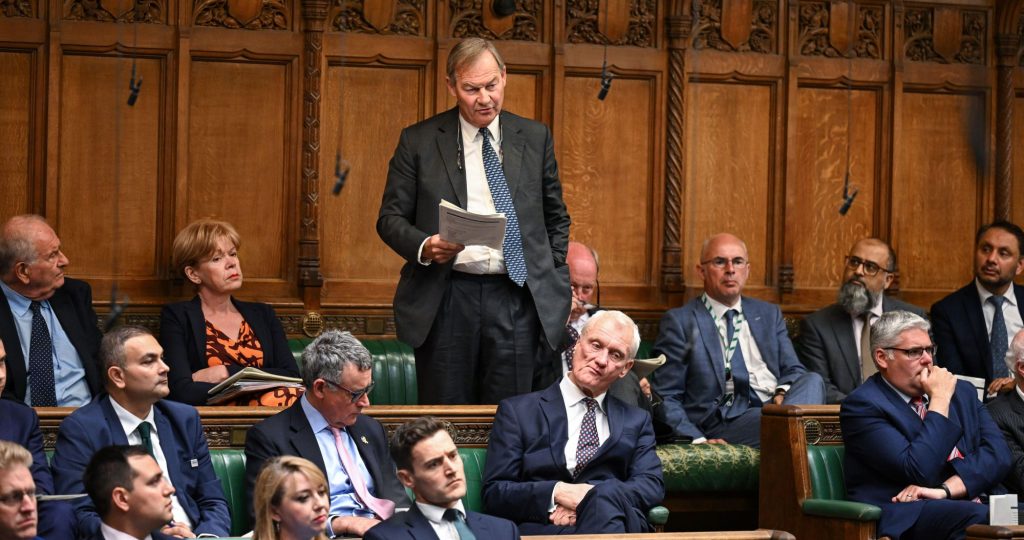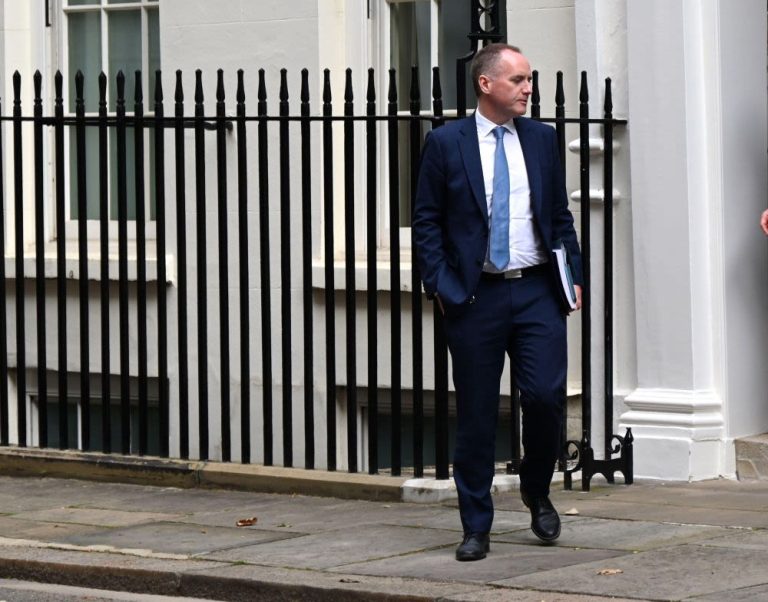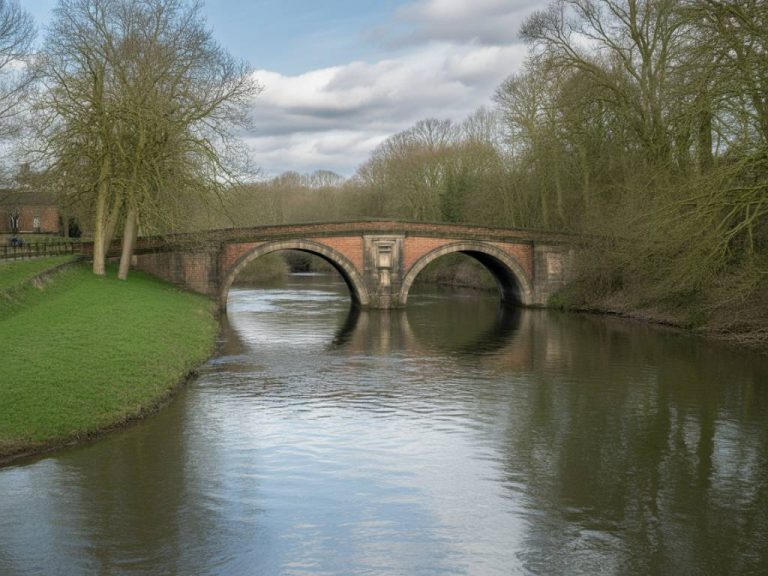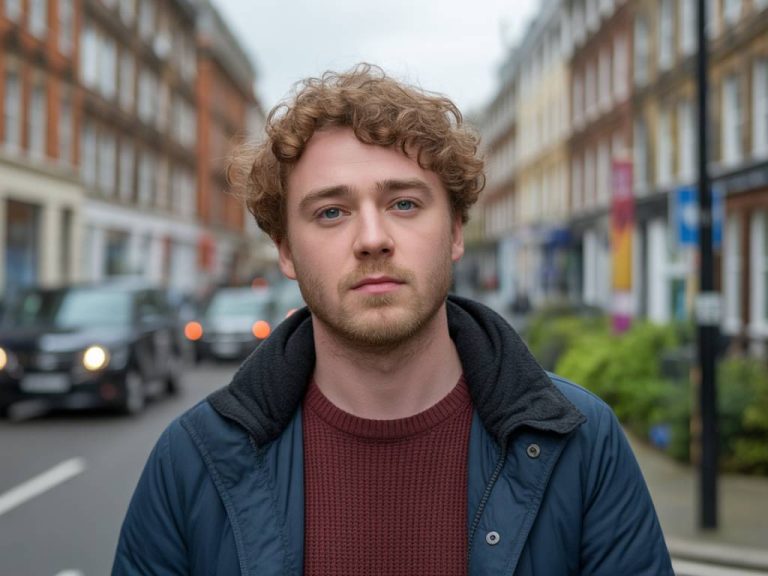
3BCT5AY ONE EDITORIAL USE ONLY. NO SALES. NO ARCHIVING. NO ALTERING OR MANIPULATING. NO USE ON SOCIAL MEDIA UNLESS AGREED BY HOC PHOTOGRAPHY SERVICE. MANDATORY CREDIT: House of Commons Handout photo issued by the House of Commons of Independent MP Rupert Lowe during Prime Minister's Questions in the House of Commons, London. Issue date: Wednesday May 21, 2025.
From Reform MP to Tory Prospect: The Mayfair Meet-Up
Former Reform UK MP Rupert Lowe stepped into the political spotlight this week by declaring he is “open” to joining the Conservative Party. The announcement follows a private lunch last Thursday in Mayfair, when Lowe met with Tory shadow Justice Secretary Robert Jenrick at the exclusive 5 Hertford Street club. Though both men insist the meeting was informal, sources tell PoliticsHome it focused squarely on Lowe’s future plans and the state of the UK’s opposition landscape.
Rupert Lowe’s Departure from Reform UK
Rupert Lowe’s relationship with Reform UK had already fractured earlier this year. In March, he was suspended amid serious allegations of verbal threats to party chairman Zia Yusuf and claims of bullying two female staff members. The Crown Prosecution Service ultimately ruled out criminal charges due to insufficient evidence, but the episode proved sufficiently damaging to bar Lowe permanently from Nigel Farage’s ranks.
Prior to the fallout, Lowe had floated the idea of launching his own political vehicle to rival Reform UK—an independent centrist alternative unburdened by Farage’s polarising brand. However, this month he conceded that starting yet another party would carry huge risks and uncertain prospects. “All options are open,” Lowe told PoliticsHome, implying that alignment with an established force like the Conservatives could be a more pragmatic route back into frontline politics.
A Lunch in Mayfair: Signals and Speculation
Jenrick and Lowe have met casually before—most recently at Lowe’s private members’ club a few months back—but this latest encounter came just days before weekend leaks of Tory plots to unseat leader Kemi Badenoch. The timing has produced whispers that Lowe’s new allegiance could be part of a broader manoeuvre among right-wing MPs dissatisfied with Badenoch’s performance.
Jenrick’s team, however, downplays any formal recruitment drive. A spokesperson told PoliticsHome that “no defection deal was discussed,” stressing that Robert Jenrick was simply enjoying lunch with a former colleague. Yet the optics are hard to ignore: Lowe joining the Conservatives would bolster their ranks while removing a popular yet maverick voice from the Reform UK challenge.
Conservative Calamity and Leadership Uncertainty
The Conservative Party has faced a brutal month at the ballot box. In early May’s local elections, the Tories lost over 600 councillors nationwide, surrendered control of several key councils, and slipped to fourth place in polling—behind Labour, Reform UK, and the Liberal Democrats. This electoral mauling has intensified internal disquiet and fuelled outright speculation of a leadership coup.
Even before the Mayfair meeting, Alex Burghart, Shadow Chancellor of the Duchy of Lancaster, hinted at welcoming Lowe into the fold. “It’s not a ‘no’, from our side,” Burghart remarked, signaling that the door remains ajar for any high-profile figure willing to pledge loyalty to the Conservative cause. Amid talk of Badenoch’s vulnerability, the party’s prospects hinge on uniting fractious right-wing voices around a coherent policy platform and leadership team.
Rupert Lowe’s Political Appeal
A former professional footballer turned MP, Lowe cultivated a reputation as a straightforward, no-nonsense representative. His departure from Reform UK underscored growing disagreements over the party’s direction and leadership style. In recent interviews, Lowe criticised Reform’s internal culture and hinted that greater unity on the centre-right could reverse the Conservatives’ decline.
Supporters argue that Lowe brings grassroots energy and centrist appeal—qualities the Tories desperately need to reclaim lost suburban and small-town voters. His presence could help mend fissures between traditional Conservative constituencies and right-of-Farage protest votes, potentially boosting the party’s electoral coalition at both national and local levels.
Obstacles to a Tory Switch
Despite the overtures, significant hurdles remain. Kemi Badenoch has publicly declared that no defectors from Reform will be welcomed back in—an apparent attempt to shore up her own leadership credentials by drawing a clear line between the two parties. Additionally, any move by Lowe would provoke backlash from Tory MPs who remain sceptical of ex-Reform figures, fearing that such candidates might lack loyalty or ideological consistency.
There is also the question of whether Conservative activists and members would embrace a former Reform MP. Local party associations meticulously vet prospective candidates, and significant controversy at the national level could discourage grassroots volunteers from investing in a high-profile defection.
What Happens Next?
With the next general election looming and both major parties in flux, Lowe’s decision carries weight beyond a single MP’s career. If he does join the Conservatives, it could encourage other Reform defectors and consolidate the right-of-centre vote under a single banner. On the other hand, defection negotiations can easily collapse under the glare of public scrutiny, leaving Lowe politically stranded.
For now, we await further signals: official announcements, shifts in polling patterns, and behind-the-scenes manoeuvres within both Conservative and Reform UK circles. One thing is certain: as Rupert Lowe said himself, “all options are open,” and the coming weeks may redefine the landscape of Britain’s opposition politics.





